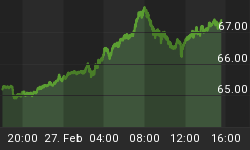They say once bitten, twice shy. At a time when the majority of western economies are doing everything in their power to avoid locking down their economies again in the face of the fast-spreading Delta variant of Covid-19, China--once the epicenter of the virus--has taken an uncompromising approach by imposing widespread travel restrictions and new lockdowns.
Authorities in Beijing have curtailed public transport and taxi services in 144 of the worst-hit areas nationwide, including train service and subway usage in Beijing.
That seems like overkill, with just 500 cases of the delta virus reported nationwide so far and a good 61% of the population already fully vaccinated. However, Beijing has opted to employ its tried-and-tested method of targeted lockdown that has been successful in stopping no less than 30 Covid-19 flare-ups in the past.Officials reported 94 new local infections on Thursday, including 32 that were asymptomatic, and Beijing is not taking any chances. The capital city of Beijing has implemented a two week quarantine for visitors from high-risk areas, halted the use of community spaces for entertainment, and also limited the number of visitors allowed at parks and scenic areas.
Chinese authorities have urged people to cancel vacations and business trips, especially those from high-risk areas, and also advised college students to delay their return to school for the new semester.
“Vaccination is not equal to entering a safe or carrying a talisman. Personal protective measures still cannot be relaxed and vaccination cannot replace containment measures. Let’s hold on until we score the ultimate victory against the outbreak," Qi Jinli, deputy director of Beijing’s Covid-19 response taskforce, has said.
Lower efficacy
Last month, reports emerged that Chinese COVID-19 vaccines, including those from Sinovac Biotech (NASDAQ::SVA) and Sinopharm Group (OTCPK:SHTDF) (OTCP:SHTDY) are ~69% effective in the prevention of infection among close contacts, according to a study involving more than 100 patients with the delta variant.
Zhong Nanshan, a leading epidemiologist in China, told Xinhua News Agency that studies had shown that the the vaccines were 73% effective against pneumonia caused by the virus and 95% effective at preventing severe disease.
However, the WSJ report has raised some controversy because a previous Israeli study indicated that the effectiveness of the Pfizer (NYSE:PFE)/ BioNTech (NASDAQ:BNTX) COVID-19 vaccine dropped to just 64% in preventing both infection and symptomatic disease with the spread of the Delta variant and relaxation of social restrictions. Experts say the effectiveness of Sinovac and Sinopharm--already lower than the western messenger RNA vaccines--is likely to be even less potent against the highly infectious delta variant.
Perhaps authorities in Beijing are aware of this hence the extra caution.
Rocked the markets
The new lockdowns in China, coupled with renewed regulatory restrictions on the country’s pivotal tech sector, have dealt a big blow to the Chinese stock markets.
China's bubbling tech sector has been hit with a massive regulatory storm ever since Alibaba Group Holdings (NYSE:BABA) founder Jack Ma criticized his country's government last year for what he called excessive regulations. Beijing hit back by cancelling the much-anticipated IPO of Ma's Ant Group--the world’s largest fintech--before putting the company through a "rectification" process and announcing it would henceforth "prevent the disorderly expansion of capital."
On Tuesday, American depositary receipts of Tencent Holdings (OTCPK:TCEHY) and XD Inc.(OTCPK:XDNCF) fell 7.3% and 5.3%, respectively, while those by their U.S. videogame peers Activision Blizzard (NASDAQ:ATVI), Electronic Arts (NASDAQ:EA) and Take-Two Interactive Software (NASDAQ:TTWO) plunged 4.6%, 3.9% and 9.6%, respectively, after a publication controlled by the Chinese government described online games as “spiritual opium” and ‘‘electronic drugs'’according to multiple reports.
Entire sectors have been hit:
KraneShares CSI China Internet ETF (KWEB) is down 25.8% over the past 30 days and is -35.4% in the year-to-date while the iShares MSCI China ETF (NASDAQ:MCHI) and the Invesco Golden Dragon China Portfolio ETF (NASDAQ:PGJ) have lost 11.9% and 26.0%, respectively, so far this year.
Hopefully, Beijing will be successful in stopping the spread of the highly infectious delta variant before too much damage is done to China’s and the global economy.
















